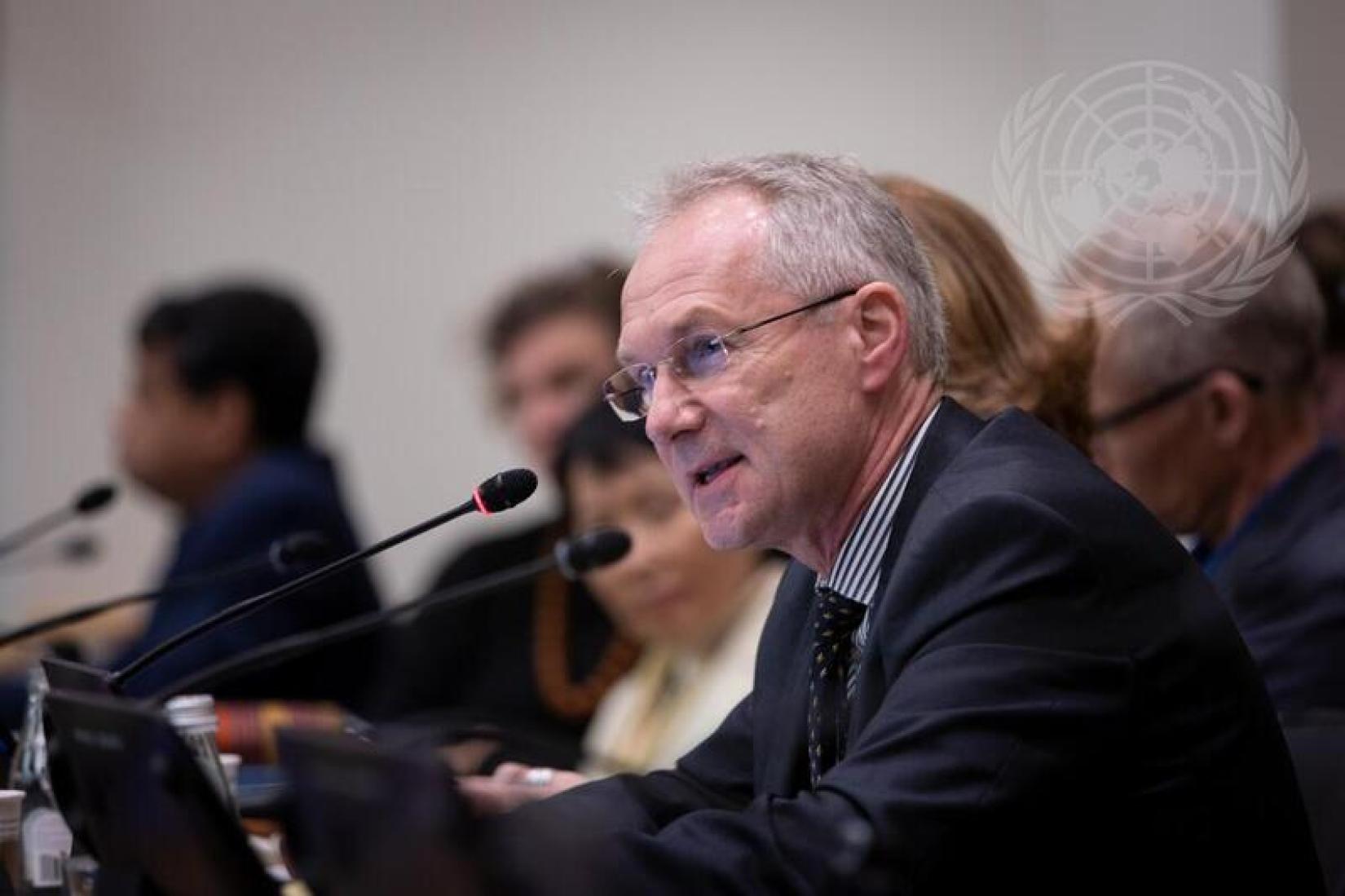6th UN Special Thematic Session on Water and Disasters (STSWD6)
22 March 2023

Remarks by Csaba Kőrösi, President of the 77th session of the UNGA
It is a rare occasion to have so many experts in one chamber focused on the priority issues shared across the water and disaster risk reduction agendas.
My great thanks to the co-sponsors for bringing us together for a 360-degree view of the challenges and actions.
A view of where and how we should advance our two agendas in the context of climate change.
We need this perspective.
In his relentless pursuit to understand the hydrological cycle, Leonardo Da Vinci famously said that “everything connects to everything else.”
It sounds trite – but it holds a practical truth for our twin agendas.
Today, five centuries later, perhaps even the “Master of Water” is smiling to see that we too recognize the value of a holistic approach to building resilient, sustainable and inclusive societies.
Frequent disasters, food and energy insecurity, biodiversity loss and the aftershocks of COVID are just some of the epic events that have exposed how connected we are.
Connected within nature, to each other, and to the spirit of solidarity embodied in the entire SDG Framework.
Around the world, the effects of climate change are being felt through more intense heatwaves, drought, forest fires and deadly flooding.
These and other disasters are posing basic questions of how we, as a global community, will choose to prepare, respond, prevent and transform.
The decisions we take today can either set the stage for proactive long-term resilience or keep us in a pattern of reactive fragility.
Fortunately, by now we have recognized two realities:
- that we cannot create the sustainability transformation we envision by scaling up conventional solutions only, and that
- we will be less vulnerable only if we ensure that climate and water policies are integrated.
And it may prove decisive that we have understood these tasks.
Well, it is not by chance that our late medieval water friend Leonardo da Vinci once remarked: “The noblest pleasure is the joy of understanding”.
As we arrive at the critical midpoint of our 2030 Agenda, we need more solidarity, more cooperation, more game-changing initiatives and more science-based actionable solutions to fulfil the promise.
The benefits of climate smart water management are fourfold.
First and foremost, they are visible in our efforts to improve disaster resilience.
The Sendai Framework review is a key process that can greatly contribute to more resilient societies.
Hydrometeorological monitoring and forecasting systems have the power to pull together robust weather, water and climate data to keep people safe.
The Early Warnings for All initiative – launched by the UN Secretary-General and led by WMO (thank you very much Petteri for that) – aims to ensure that everyone is protected by systems that warn about hazardous weather events.
As a centralized service outlet, it can help us close the gaps in understanding disaster risk, monitoring and forecasting, rapid communication, preparedness and response.
Better planning and management of forests, wetlands, dams and other water storage areas, along with adequate safeguards, are other essential tools for improving disaster resilience and emergency response.
Second, climate smart water management can bolster societal resilience and multilateral cooperation.
A global water information system – one of the game changers of the UN Water Conference, that is to start tomorrow – is a solution that would not only strengthen the information base we need to reduce vulnerability, but also increase the solidarity that will make us more resilient.
We know that well-informed, well-managed water systems carry a host of benefits for people and planet. Among them:
- safeguarding public health from waterborne illness and toxic chemicals,
- fostering job creation and respect for human rights,
- promoting gender equality and inclusion by involving women and indigenous peoples in the design and operation of programmes, and
- preserving the crucial biodiversity that underpins global nutrition and food security.
Third, climate smart water and land management is essential for lowering greenhouse gas emissions and capturing carbon.
Well-planned hydropower projects can provide clean energy at many locations.
Climate and water smart agriculture, trade and development financing can improve water and energy efficiency, as well as reduce our dangerous reliance on fossil fuels.
Low-emission pumping, desalination and water harvesting infrastructure are other proven ways to cut emissions and should be considered as genuine alternatives.
Fourth, climate smart water management can help us rethink – and strengthen – our policy frameworks for biodiversity.
Stronger policies, incentives and regulations for protecting and restoring water rich ecosystems have a direct positive impact on biodiversity and can help us protect our planet.
In fact, there is quite an overlap between the challenges we face and the opportunities we see.
And by now, we have the power to turn both to our advantage.
As the UN [Water] Conference begins, let us use this opportunity to connect the issues.
Let us continue to raise awareness, call for action and commit to transformation.
The “Paris Moment” of water is here.
It will be, it has to be, the New York moment of water and sustainability.
It is time to make the most of it.
Because, as Leonardo da Vinci said, “Knowing is not enough; we must apply. Being willing is not enough; we must do."
Thank you very much.
[END]


